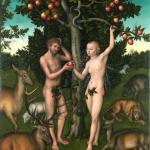The LGBTQ+ movement, a political agenda which derives its intellectual framework from “Queer Theory,” is a truly mystifying phenomenon. I believe it is safe to say that it confounds most of us, even those who might be amenable to its claims of an extended array of sexual identities, orientations and permissible sexual acts. Within the confines of Christian denominations and churches it seems to be the most discussed issue of our day, with perhaps race and racism a close second. And within those confines, confusion reigns and debates are often more rhetorical than reasonable.
As to Queer Theory, the theoretical source of the political activism, on the one hand its acknowledgment of the mysterious nature of human sexuality as, well, mysterious, is impossible to deny. There is something about human sexuality specifically that seems to transcend other features of our humanness, like our race, class or ethnicity. At the same time, however, the theory’s claims and subsequent activism appear so unscientific and irrational that even the most secular-minded in society find its central tenets to be quasi-religious in nature. But theologically speaking, how should we understand both the queer theory and practice of LGBTQ+?
Transformation Stories: Of Coming-Outs and Conversions
In a fascinating essay, “Post-Secular Queer: Christianity, Queer Theory, and The Unsolvable Mysteries of Sexual Desire,” Norman Jones contemplates a theoretical connection between LGBTQ coming-out stories and stories of Christian conversion. There seems to be some analogy between queer coming-out stories and stories of religious transformation:
Coming-out narratives share key formal and thematic similarities with the kind of conversion narratives characteristic of many Protestant communities in the US (although such conversion narratives are not exclusive to Protestants)….These two different types of personal transformation narrative[s], considered as rhetorical practices, tend to imply similar kinds of epistemological justifications for the worldview they articulate and the ethical commitments they valorize.
Jones, 71
According to Jones, these stories of personal transformation act as epistemic justification for the validity of homosexuality or the queer lifestyle. For example, the experience of a young man struggling with homosexual desires or conflicting sexual identities who suddenly becomes open to affirming those desires and accepts a particular, but non-traditional, sexual identity is evidence that the desires and identity are both ontologically and morally valid. In other words, the experience of coming to realize one “is gay” or “lesbian” or “bi-sexual” is a justification of those identities (the ontological) and their accompanying sexual practices (the moral).
This is analogous to the experience of the former “sinner” who in finding Jesus, either in a single transformative moment or a gradual process of spiritual seeking, becomes “born again.” The story arc of “once sinner” then “transformative moment/process” to “now saint,” also known as the personal testimony, justifies one’s belief in Christianity and the practice of Christian values.
In both cases, the account of the personal experience is treated as evidence for the validity of the lifestyle and its claims. Further, similar to the once conflicted homosexual, lesbian or trans-person, the former sinner now has a new paradigm through which they can view their prior history. This makes sense of their earlier struggles as one might say “I was running away from my true self,” or “I was running away from God.”
Can Transformation Stories Act as Arguments?
There is an initial question that needs addressing. Can a story or the experience that generates a story act as justification, both epistemic and moral, for a particular lifestyle? In other words, does a personal narrative count as evidence that the beliefs someone holds or the moral values one pursues are true and valid? In his essay, Jones points out that many Christians now accept personal transformation stories as just that, evidence for the validity of the transformation and its subsequent claims:
A wide range of thinkers increasingly recognizes that such narratives constitute a valid epistemology, a mode of knowing that is not merely a subjective and therefore logically inferior version of more rigorous analytic modes….[While] such arguments are inherently relative and therefore always potentially contestable [they] can be nonetheless useful and effective: a narrative transition argument ‘aims to establish, not that some position is correct absolutely, but rather that some position is superior to some other.’ (Taylor, 1989, 72.)”
Jones, 74
Drawing from Catholic philosopher Charles Taylor, Jones thinks that spiritual conversion or sexual coming-out stories can themselves act as types of arguments. They are not like traditional deductive arguments that relate to propositional content, but rather modes of knowing things about man and his place in the world that are born directly from the phenomena of experience. In short, one is justified when one simply relates the experience of coming to believe in and practice a certain lifestyle.
If one thinks this is a subpar justification for one’s Christian beliefs, Jones further refers to well-known Christian thinkers like Alasdair MacIntyre, Alvin Plantinga and Nicholas Wolterstorff who have proposed alternative epistemologies to classical foundationalism. For Jones, primarily, it is this experiential way of knowing that seems just as valid as conclusions grounded in analytic knowledge and logical deduction.
But this is only partially correct. For to rely too much on one form of knowing at the expense of the other (in either direction) will always lead to certain problems. Relational and experiential knowing at the expense of logical argumentation and forensic justification leaves the subject without resources outside herself to assess what is going on inside herself. It ultimately abandons the person to figure herself out as the interpreter of her own experience. At the same time, clearly we cannot reduce life in all its richness and complexity to the content of propositions or any valid syllogisms we might formulate from them. We really do know more things apart from deduction than from deduction.
A simple way to demonstrate a symbiotic relationship between the two ways of knowing might be to say that while at some point a Christian must actually affirm the propositional content of the Apostle’s Creed as true, so too must she be willing to die for that content. The symbiosis of both ways of knowing would be present in the person who affirms that Jesus Christ was crucified, died and was buried, and rose again on the third day, and who, if threatened, happily faced persecution, imprisonment and even death on account of that content.
Sexual Knowing and Spiritual Knowing
But Jones’ point is to relate the experiential way of knowing to both the sexual and the spiritual transformations of LGBTQ+ people and Christians. Jones says later in the article:
As a trope for spiritual desire, sexual desire conveys the sense of a truth knowable not so much algorithmically or abstractly as relationally and bodily–a truth that is never finally possessed but rather experienced phenomenally and repeatedly.
Jones, 76
Jones further mention mystical traditions, especially in Roman Catholicism, but also biblical language (Song of Songs) that speaks of the experience of God in sensual and even erotic terms. As such, sexual coming-out narratives use spiritual tropes in the same way that spiritual narratives often use sexual tropes. To experience God can be like an erotic experience. To experience a form of sex can be like a religious experience. M. Scott Peck, in his classic book on traditional wisdom, The Road Less Traveled, highlights this spiritual aspect of the sex act in vivid detail:
It is obvious and generally understood that sexual activity and love, while they may occur simultaneously, often are disassociated, because they are basically separate phenomena. In itself, making love is not an act of love. Nonetheless the experience of sexual intercourse, and particularly of orgasm (even in masturbation), is an experience also associated with a greater or lesser degree of collapse of ego boundaries and attendant ecstasy. It is because of this collapse of ego boundaries that we may shout at the moment of climax ‘I love you’ or ‘Oh, God’ to a prostitute for whom moments later, after the ego boundaries have snapped back into place, we may feel no shred of affection, liking or investment.
Peck, 95-96
The moment of sexual climax is akin to a transformative spiritual or religious experience. It is a type of “knowing” another, a subject outside oneself, in the most intimate way possible. St. Paul explained the same phenomena 1,950 years earlier when he wrote to the church in Corinth,
Or do you not know that he who is joined to a prostitute becomes one body with her? For, as it is written, “The two will become one flesh.”But he who is joined to the Lord becomes one spirit with him.
1 Corinthians 6:16-17
That the mystery of human sexuality and the mystery of human spirituality are intimately related should not be surprising to the Christian. However, where God has placed clear boundaries on the mystery of sexuality, that is where queer theory takes its antagonistic stance.
The Infinite Mystery of Sexuality
The core tenet of Queer Theory is that there are no boundaries to human sexuality. As soon as we try to define a sexual identity or categorize sexual behavior there is something about the phenomena of sexuality that resists that definition or categorization. As such, there is an explicit rejection of both identities, e.g., heterosexual, homosexual, bi-sexual, etc., as well as “normative” activities.
The idea is that our socially constructed markers can never fully grasp or articulate the mystery of sexuality. Hence the “+” at the end of “LGBTQ.” There may always be some new identity to add to the potentially infinite array. If this is the case, why should we try to claim any aspect of human sexuality as fixed? To do so would mark the end of the theory. Like ethical norms in general for Hegel, sexual norms are as fluid as the culture that produces them.
Jones points out that this desire to keep sexuality mysterious is akin to a return to pre-modern ways of thinking, a turning back to religious modes of thought:
A postcolonial [post-Enlightenment] perspective on the valorization of unsolvable mystery in sexuality studies suggests the such valorization constitutes an imaginative return to what one might call premodern or non-modern ways of knowing that pre-date the rise of secular epistemologies [scientific rationalism, foundationalism] characteristic of Western modernity.
Jones, 81
In other words, Queer Theory and the accompanying LGBTQ+ movement are more religious than secular in their attempt to move away from modernist, scientific and logical modes of thinking. Again, this should not surprise the Christian who is familiar with the nature of the pagan religions that surrounded ancient Israel. A quick read through the Old Testament will show that most of the Canaanite cults were indeed dedicated to sex and the mystery of human sexuality. Just consider all those asherah poles that dotted the hillsides from Dan to Beersheba.
LGBTQ+ and The Search for The Infinite God
But, what might ultimately be going on here? In the longing to know that which seems infinitely mysterious, have queer theorists, like so many, made an unholy exchange? In his letter to the Romans, St. Paul talks about how man exchanges something in the creation for God Himself, confusing the creature with the Creator (Romans 1:18-32). Man does this, however, not only in ignorance but in his unrighteous suppression of the truth. If, as Jones points out, queer theorists want to “locate meaning in mystery,” then why are they looking to human sexuality as the source of that mystery?
The answer is because they do not want to look at God. After all, who among us does? Instead, queer theorists seem to confuse an aspect of God’s creation, human sexuality, thinking it infinitely mysterious, with God’s nature, which is actually infinite and, as such, infinitely mysterious. The exchange is normal in the sense of it being natural to us as fallen creatures. We make the exchange for some aspect of God’s creation over God Himself as easily as we breathe in oxygen and exhale carbon dioxide. However, just because it is natural to us does not mean it is good for us. To make the exchange is to breath in carbon dioxide, an exchange ultimately fatal to our well-being.
First, it is not only an offense to God who is the giver of all things truly good, but it is destruction to the those who make the exchange. St. Paul’s dire warning to the church in Rome rings true as much today as it did then. Of course, it rings true because we do have a human nature that does not progress or alter as history and culture do. Paul describes what happens when we try to find the infinite God within His finite creation:
For although they knew God, they did not honor him as God or give thanks to him, but they became futile in their thinking, and their foolish hearts were darkened. 22 Claiming to be wise, they became fools, 23 and exchanged the glory of the immortal God for images resembling mortal man and birds and animals and creeping things.
24 Therefore God gave them up in the lusts of their hearts to impurity, to the dishonoring of their bodies among themselves, 25 because they exchanged the truth about God for a lie and worshiped and served the creature rather than the Creator, who is blessed forever! Amen.
26 For this reason God gave them up to dishonorable passions. For their women exchanged natural relations for those that are contrary to nature;27 and the men likewise gave up natural relations with women and were consumed with passion for one another, men committing shameless acts with men and receiving in themselves the due penalty for their error.
28 And since they did not see fit to acknowledge God, God gave them up to a debased mind to do what ought not to be done. 29 They were filled with all manner of unrighteousness, evil, covetousness, malice. They are full of envy, murder, strife, deceit, maliciousness. They are gossips,30 slanderers, haters of God, insolent, haughty, boastful, inventors of evil, disobedient to parents, 31 foolish, faithless, heartless, ruthless.32 Though they know God’s righteous decree that those who practice such things deserve to die, they not only do them but give approval to those who practice them.
Conclusion: People are People, Not Theories
Most people involved in LGBTQ+ lifestyles are not there because they read a book on Queer Theory. Their struggles probably emerged from trials or tragedies occurring in early childhood development. We live in a broken cosmos. None of us has developed correctly in this world groaning for redemption. All of us have desires that seek to be filled and yearnings that should be fulfilled but that are oriented incorrectly. Is this not the very heart of our sinful predicament?
However, for queer theorists to posit a philosophy to try to explain the phenomena of aberrant sexuality is clearly not the answer to our problem nor will it sate our thirst for love. Man’s wisdom is foolishness to God just as God’s wisdom seems foolish to men. An infinite array of sexual identities and practices is not what will bring fullness, healing or health. It is not the answer to our longing, nor the solution to our deepest desires. Moreover, studies have documented the damage that occurs to bodies and minds if one travels down the road of unbounded sexuality.
Only God is the solution. Only Christ is the answer, for only Christ is both finite and infinite, full of humanity and full of divinity. In Him we find our peace and the end to our search. For Christ is that which is both infinitely mysterious yet at the same time intimately knowable. Christ is no theory, He is a Person. People do not need theories, they need people. But our desires exceed that which any mere human can provide. St. Augustine put it best:
Man is one of your creatures, Lord, and his instinct is to praise you. He bears about him the mark of death, the sign of his own sin, to remind him that you thwart the proud. But still, since he is a part of your creation, he wishes to praise you. The thought of you stirs him so deeply that he cannot be content unless he praises you, because you made us for yourself and our hearts find no peace until they rest in you.
And indeed seeking contentment in our sexuality, as mysterious as it might be, will never give our hearts rest. Only He who made the human heart can do that.














